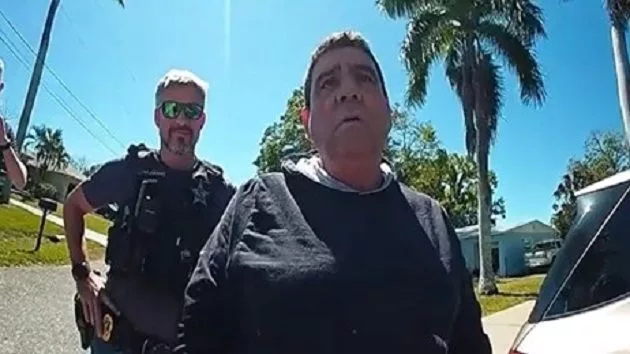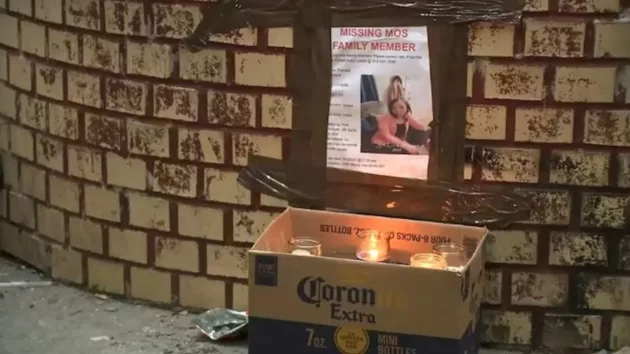
(AUSTIN, Texas) — On the second day of a hearing over a lawsuit filed against the state of Texas, an anti-abortion doctor who practices in the state testified Thursday in support of the ban, stating “the law is clear” and that if doctors believe they cannot provide proper care, it’s because they misunderstand the law.
Meanwhile, two physicians who practice medicine outside the state testified for the plaintiffs, arguing that Texas’ abortion laws are confusing and would make it difficult to provide necessary care to patients.
They were joined by a physician in Texas who was pregnant herself and delivered emotional testimony about having to go out of state to get an abortion.
The hearing is part of an ongoing lawsuit filed by the Center for Reproductive Rights on behalf of 15 women in the state of Texas alleging that the state’s abortion laws put their lives in jeopardy.
The testimony was given during a court hearing that began Wednesday as part of plaintiffs’ request for a temporary restraining order on abortion bans, permitting women to receive lifesaving emergency abortions.
Lawyers are asking the court to provide a “remedy applied to patients whose life, health or fertility is at risk from an emergent medical condition,” Molly Duane, a senior staff attorney at the Center for Reproductive Rights and lead attorney on the case, said during opening statements Wednesday.
Dr. Austin Dennard, a plaintiff in the lawsuit and an OB-GYN who had to travel out of state to receive abortion care for a nonviable pregnancy, took the stand Thursday. Dennard — who is currently pregnant again — testified that she and her husband made the “very difficult decision” to abort a pregnancy in 2017 after the fetus was diagnosed with a very rare genetic disorder.
In emotional testimony, Dennard testified that she found out she was pregnant in June 2022.
At her second ultrasound appointment, Dennard — who was nervous because she had a miscarriage months before — said she realized that her baby had acrania, a fatal condition in which a fetus does not have a skull, leaving brain tissue exposed to amniotic fluid, as soon as she saw the ultrasound.
“I immediately realized that there was something catastrophically wrong,” Dennard said.
“I was devastated. We were trying so hard. I had been hoping and praying for another baby and just had envisioned having a third and realizing that this pregnancy was not going to end with another little toddler running around my house. That’s hard,” Dennard said.
At a second ultrasound, a maternal fetal medicine specialist then diagnosed the fetus with anencephaly — but there was still a cardiac heartbeat.
“I think I was crying at that time. And she came over and just gave me a big hug and said, ‘I’m so sorry. I’m so sorry you’re going through this torture when you got the diagnosis of anencephaly,'” Dennard said.
Dennard testified that anencephaly is a fatal, severe defect for the fetus that poses a risk to the health of the mother as well.
“[The babies live] seconds, minutes, maybe a day. They essentially just gasp for air until they pass away,” Dennard said.
Dennard said she made the decision to travel to get an abortion out of state and described what it felt like to not have access to care in Texas and be forced to carry a nonviable pregnancy.
“I felt like my pregnancy was not my own, that it belonged to the state because I no longer had a choice of what I could do. I felt abandoned. I couldn’t believe that after spending my entire life in the state, being a sixth generation Texan, practicing medicine in the state, that the state had completely turned their back on me,” Dennard said.
“And for them my only choice was to continue the pregnancy, putting my life at risk and my mental and emotional health at risk for a fetus that was never going to survive. So I had a lot of big feelings about it,” Dennard said.
Dennard testified that her emotional recovery takes longer time than her physical recovery and said the grief of losing a child “never really goes away.”
She said she considered going public with her story earlier but did not do so initially out of fear and because she was not ready.
In cross-examination, a representative for the state asked Dennard about her age and whether her pregnancy was higher risk because she was “over 35.” She then asked Dennard if she would have been “considered geriatric” due to her age, to which Dennard responded, sarcastically, “Well that’s a nice word,” adding, “Geriatric is not a medical term.”
Testimony from out of state physicians
The two physicians who testified Thursday practice medicine in Oregon and Massachusetts, but said they would find it difficult to practice medicine in Texas under the bans.
“My opinion is that the laws as they’re currently written — the medical exceptions — they’re confusing. And that confusion and lack of clarity is keeping physicians from being able to exercise their good faith judgment in the treatment of patients,” said Dr. Ali Shahbizraja, an emergency medicine physician at Massachusetts General Hospital.
“It, also, is pretty evident that the fact is that the consequences of those laws are severe, personally, to the physicians themselves. And as a consequence of that, they are going to they’re going to, in patients where there’s a gray zone and there’s a lack of clarity, they’re going to err on the side of not treating,” Shahbizraja said.
Shahbizraja testified that this appeared to be the case when physicians were treating patients who are plaintiffs in this lawsuit.
“It’s making it hard to determine when physicians can act and exercise that in good faith clinical judgment, and that’s clear based on the patient’s understanding of their discussions with their physicians in their affidavits,” Shahbizraja said.
Another expert agreed and said wording of the laws would scare physicians.
“Given that physicians in Texas are practicing under the abortion ban — where if they’re prosecuted they carry risk of losing their license, their livelihood and time in jail — they’re going to practice the most conservatively as possible,” Dr. Aaron Caughey, a maternal fetal medicine specialist at Oregon Health & Science University, testified in court Thursday.
“It is hard to create a list that would delineate all the conditions that would meet a medical indication for abortion. I gave some examples above to give a sense of how you might think about it. But creating an exhaustive list, I believe, would be an impossible task,” Caughey said.
Caughey also testified to the care the women who are plaintiffs in the lawsuit could have received in the absence of Texas’ bans.
Texas OB-GYN testifies for the state
Dr. Ingrid Skop, a Texas OB-GYN, testified as an expert witness for the state Thursday, arguing that abortion care hadn’t changed in Texas despite the state’s ban on the procedure. Skop works for the Charlotte Lozier Institute, an anti-abortion group, and has shared her views on abortion publicly in the past.
She said many physicians in Texas are confused about the new abortion law and are misinterpreting it because they don’t understand it, which has led to “suboptimal care.”
“The law is quite clear,” Skop said. “The fault lies with the physicians are not being given guidance by the organizations that usually will give them guidance — the medical societies and the hospital societies.”
“They should have known they could intervene,” she added in reference to reports of women who have been in life-threatening situations after not being able to get an abortion in Texas. “They should not have waited until women were on the verge of death and going to the ICU to intervene.”
Skop also argued that, in situations where a fetus cannot be saved, she believes induction is more appropriate than performing a procedure such as dilation and curettage.
“A much more holistic way to progress through the grieving process than to dismember your child and not have a way to grieve.”
She added that palliative care and hospice care, including perinatal palliative care should be provided.
Skop added that life-threatening complications often occur close to viability, which she said is around 22 weeks gestation, and “the child is able to survive.”
She said doctors can use their judgment in determining if the medical exception applies in a patient’s case, but conceded the Texas Medical Board could clarify the law and help physicians understand when abortions are medically necessary.
Closing arguments
In closing arguments, the plaintiffs’ attorneys argued that the bans are “dehumanizing” and are putting patients through “torture.”
“Far from furthering life, Texas abortion bans harm the life of pregnant people and the lives of their children,” Duane, the Center’s attorney, said during closing.
Meanwhile, the state argued that the medical exception under the Texas abortion ban passed rational basis review, which is a judicial review to determine if a law is constitutional.
The state also said that because two plaintiffs who testified Wednesday — Amanda Zurawski and Samantha Casiano — had their fertility compromised and Dennard’s current pregnancy is past viability, they don’t risk being harmed by the ban.
District Judge Jessica Mangrum told the attorney in the case it would likely take her “several weeks” to rule, adding, “It will take some time because it’s necessary to fully and fairly evaluate what you’ve put in front of this court.”
In a press conference after the hearing, Duane said, “This is not about the right to an abortion. This is about basic human rights.”
Wednesday’s hearing
Thursday’s testimony follows emotional testimony from three of the women filing the suit who detailed the harm they experienced due to the state’s abortion ban. All three plaintiffs gave their testimony through tears, with one of the plaintiffs even getting sick on the stand when recalling continuing her pregnancy after not being offered care.
The plaintiffs who testified were Amanda Zurawski, who developed sepsis and nearly died after being refused an abortion when her water broke at 18 weeks; Ashley Brandt, who had to travel to Colorado for abortion care after one of the twins she was carrying was diagnosed with a fatal condition; and Samantha Casiano, who was not offered abortion care and had to carry a nonviable pregnancy to term and give birth to a baby who died four hours later.
A fourth plaintiff, Dr. Damla Karsan, an OB-GYN who practices in Texas, also testified Wednesday.
The suit alleges that Texas’ abortion bans have denied the plaintiffs and countless other pregnant people necessary and potentially lifesaving medical care because physicians in the state fear liability, according to the suit.
Texas has several abortion laws in place, prohibiting all abortions after six weeks of pregnancy, except in medical emergencies, which the laws do not define. One of the bans — called SB 8 — prohibits abortions after cardiac activity is detected, which kept several plaintiffs from accessing care despite their pregnancies being nonviable, according to the suit.
Under Texas’ bans, it is a second-degree felony to perform or attempt an abortion, punishable by up to life in prison and a fine of up to $10,000. The law also allows private citizens to sue anyone who “aids or abets” an abortion.
The suit is the first to be filed by women impacted by the abortion bans since the U.S. Supreme Court overturned Roe v. Wade last year, ending federal protections for abortion rights.
The lawsuit is filed against the state of Texas, Attorney General Ken Paxton — who was recently impeached — and the Texas Medical Board.
Copyright © 2023, ABC Audio. All rights reserved.





